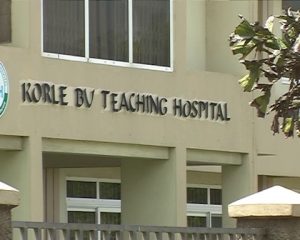Dr Owusu Afriyie Akoto, Minister for Food and Agriculture, (MOFA) Wednesday stated that Ghana does not need Genetically Modified foods because it can rely on other productive means to ensure food security.
“We have not maximised the use of our traditional techniques, such as cross-breeding, budding and grafting, for production, besides, the citizens have expressed their aversion to GM foods,” the Minister declared.
Dr Akoto was responding to questions, after he had read his speech, at the maiden regional meeting, in Accra, of Country Directors of West and Central Africa of the World Food Programme (WFP).
One of the directors wanted to know if Ghana would consider the integration of GMOs; following The Minister’s address, which highlighted the successes being chalked under the flagship Government intervention, ‘Planting for Foods and Jobs’ and the plans to include other modules.
The World health Organisation defines GM foods as “organisms – plants, plants or micro-organisms – in which the genetic material (DNA) has been altered in a way that does not occur naturally my mating and or natural recombination”.
The debate on GM foods continues as proponents say it provides the way to significantly increase yields and control diseases and pests.
However, critics believe they present risks to human health and safety and as well interference to the natural environment.
Dr Akoto said Ghana’s food sufficiency situation was manageable, with the Government importing occasionally, when there was drought to complement local output.
Hybrid seeds for instance, the Minister said, could give 40 bags of grains per acre, which was 10 times what the GMOs could produce, adding that 11 percent of farmers also used improved seeds and fertiliser to improve their yields.
Additionally, Ghanaian universities had developed enough methods of improving the Agricultural sector, which were yet to be utilised, thus, GMOs was not an imperative.
In his address, he explained the “Planting for Food and Jobs” programme was to address the challenges in the sector and motivate young people to embrace agricultural production as a business.
Two years into the programme, there was significant bumper harvest, which was bringing down food prices, while the level of imports was declining.
In 2018 Ghana exported some food products to Burkina Faso, Cote d’Ivoire, Togo, Niger and others, he stated.
“The Government will ensure the bumper harvest becomes an annual event as it promotes food security, annual nutrition and economic independence, among the populace”.
The four modules being introduced are: Green House Villages, Planting for Export and Rural Development, Rearing for Food and Jobs and Farm Mechanization.
Mr Abdou Dieng, the WFP Regional boss for West and Central Africa, commended the Government for keeping faith with the WFP.
The meeting provides the platform for the various partners to harmonise their approaches to support governments to achieve their humanitarian and development goals.
The bi-annual meeting is being held from March 13 to 15.
WFP is the food-assistance branch of the United Nations and the world’s largest humanitarian organisation for addressing hunger and promoting food security.
The Programme provides food assistance to an average of 91.4 million people in 83 countries every year from its headquarters in Rome; and it operates in more than 80 countries worldwide to help people who cannot produce or obtain enough food for themselves and their families.
Source: GNA






